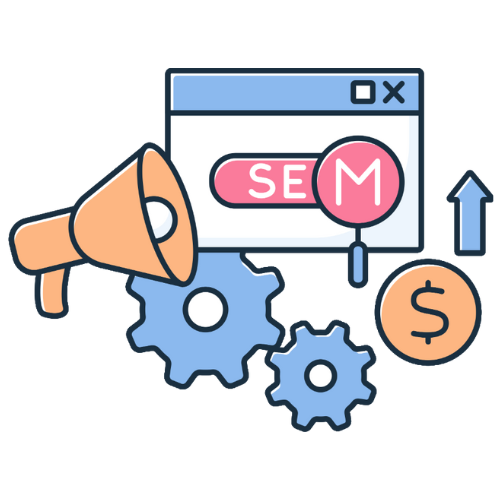
SMM vs. SEM: Revealing Their Importance and Impact for eCommerce Startups
In the rapidly evolving world of eCommerce, digital marketing strategies play a pivotal role in the success of startups. Among the key players in this realm are Social Media Marketing (SMM) and Search Engine Marketing (SEM). Let’s delve into the significance and impact of these two approaches, shedding light on how they can empower eCommerce startups to thrive in the digital landscape.
SMM and SEM Fundamentals
Social Media Marketing (SMM)
SMM involves leveraging social media platforms such as Facebook, Instagram, Twitter, and LinkedIn to promote products, engage with customers, and build a brand’s online presence. It encompasses activities like creating content, running ads, and fostering community interactions.
Search Engine Marketing (SEM)
SEM involves utilizing paid advertising to boost a website’s visibility on search engine results pages (SERPs). This includes pay-per-click (PPC) campaigns, where advertisers bid on keywords to display their ads at the top of search results.
The Importance of SMM for eCommerce Startups
Brand Awareness: SMM allows startups to introduce their brand to a broader audience, creating brand recognition and recall.
Targeted Reach: Social media platforms offer advanced targeting options, enabling startups to reach their ideal customers based on demographics, interests, and behaviors.
Engaging Content: By creating compelling content, startups can engage their audience, fostering a loyal community around their brand.
Cost-Effective: SMM is often more cost-effective than traditional advertising methods, making it ideal for startups with limited budgets.
Influencer Collaboration: Collaborating with influencers allows startups to tap into established audiences and gain credibility.
Cost-Effective Strategy: Compared to PPC, SEO requires an upfront investment but can yield long-term benefits without ongoing expenses per click. This makes it a cost-effective approach for startups looking to establish a strong online presence.
Trust and Credibility: High organic rankings contribute to your brand’s credibility and authority in the eyes of consumers. People often trust organic search results more than paid ads, leading to better click-through rates and conversions.
The Impact of SEM for eCommerce Startups
Immediate Visibility: Through PPC campaigns, startups can achieve instant visibility on search engines, driving immediate traffic to their website.
Targeted Advertising: SEM enables precise targeting based on keywords, ensuring that ads are shown to users actively searching for relevant products.
Performance Tracking: SEM platforms provide robust analytics, allowing startups to measure the effectiveness of their campaigns and make data-driven decisions.
Scalability: As startups grow, SEM campaigns can be scaled up to capture larger audiences and expand the business.
Higher Conversion Rates: Users clicking on SEM ads are often further along the buying journey, resulting in higher conversion rates compared to other channels.
The Synergy Between SMM and SEM
While SMM and SEM are distinct strategies, they can work synergistically to maximize results for eCommerce startups. Here’s how:
Cross-Promotion: SMM can drive traffic to your website, where SEM can then capture the attention of users actively searching for related products.
Unified Messaging: Coherent messaging across SMM and SEM campaigns reinforces your brand identity and resonates with your target audience.
Data Sharing: Insights from SMM campaigns can inform SEM keyword selection, enhancing the effectiveness of your paid campaigns.
Retargeting: SMM can drive initial awareness, and SEM can be used for retargeting users who have shown interest in your products.
Conclusion: Striking the Balance
In the competitive eCommerce landscape, startups must strike a balance between SMM and SEM to achieve optimal results. SMM’s focus on brand building and engagement complements SEM’s direct response tactics. By incorporating both strategies into their marketing mix, startups can drive brand awareness, attract high-intent traffic, and ultimately increase conversions.
Keep in mind that there is no one-size-fits-all approach. The right blend of SMM and SEM depends on your target audience, goals, and budget. Whether you’re aiming to create a strong brand presence through SMM or seeking immediate visibility with SEM, integrating these strategies thoughtfully can pave the way for eCommerce startup success.





















